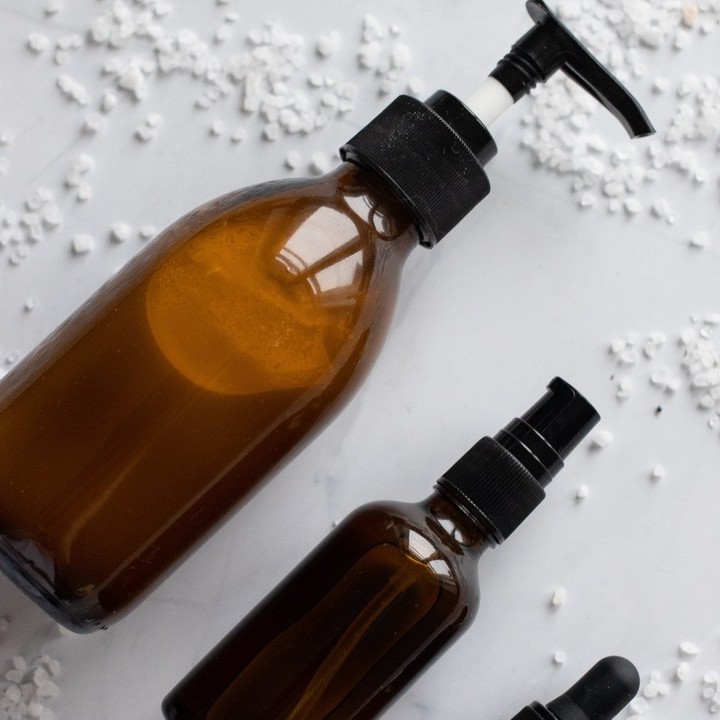
Dry Skin: Understanding, Challenges, and Effective Solutions
Dry Skin: Understanding, Challenges, and Effective Solutions
Dry skin is a common skin type characterized by a lack of moisture and natural oils. It often feels tight, rough, and may appear dull or flaky. Understanding the unique needs and challenges of dry skin is crucial for developing an effective skincare routine. This article explores the causes, problems, and practical solutions to maintain healthy and hydrated skin.
Skin Specifications
Dry skin is typically caused by various factors, such as genetics, environmental conditions, or lifestyle choices. Individuals with dry skin have an impaired skin barrier function, which leads to increased moisture loss.
This skin type lacks sebum production, the natural oil that helps retain moisture. Dry skin is often sensitive and prone to irritation, making it essential to adopt a gentle and nourishing skincare approach.
Common Problems
Dry skin is associated with several challenges that can affect its appearance and overall health. These include:
- Dehydration: The lack of moisture in the skin can result in a dull and lackluster complexion.
- Flakiness and Tightness: Dry skin tends to feel tight and may develop flaky patches, especially in dry climates or during colder seasons.
- Sensitivity: Dry skin is more susceptible to irritation and may react adversely to harsh chemicals or extreme temperatures.
- Premature Aging: Without proper hydration, dry skin is prone to developing fine lines, wrinkles, and an aged appearance.
Maintaining Dry Skin
To maintain healthy and nourished dry skin, consider the following tips:
Gentle Cleansing: Opt for mild, fragrance-free cleansers that do not strip away natural oils. Avoid hot water, as it can further dehydrate the skin. Instead, use lukewarm water for cleansing.
Hydration is Key: Moisturizing is crucial for dry skin . Look for a moisturizer with ingredients like hyaluronic acid, glycerin, or ceramides. Apply it twice daily, after cleansing, to seal in moisture and restore the skin's natural protective barrier.
CeraVe SA cream for rough skin.
and this for very dry skin
Exfoliation: Regular exfoliation helps remove dead skin cells and promotes cell turnover. Opt for gentle exfoliants with ingredients like alpha-hydroxy acids (AHAs) or enzymes. However, limit exfoliation to once or twice a week to avoid over stripping the skin.
CeraVe resurfacing retinol serum.
Avoid Harsh Ingredients: Steer clear of skincare products that contain harsh chemicals, alcohol, or fragrances. These can further irritate and dry out the skin. Instead, opt for gentle, hypoallergenic formulations that are specifically designed for dry skin.
Recommended Products
Choosing the right products is essential for maintaining dry skin . Consider incorporating the following into your skincare routine:
Hydrating Cleanser
Look for a creamy or oil-based cleanser that gently removes impurities while preserving the skin's moisture.
Rich Moisturizer
Choose a moisturizer with a rich, creamy texture that provides intense hydration. Look for ingredients like shea butter, ceramides, or natural oils such as jojoba or avocado oil.
Facial Oils
Consider adding a facial oil to your routine for an extra boost of hydration. Look for oils like argan, rosehip, or marula oil, which are known for their nourishing properties.
Overnight Masks
Incorporate an overnight hydrating mask once or twice a week to provide deep nourishment and replenish moisture levels while you sleep.
Clarins double serum firming and smoothing anti-aging concentrate.
Here are some things you should avoid if you have dry skin:
- Washing your face too often: Washing your face too often can strip away the natural oils that your skin needs to stay hydrated. Aim to wash your face twice a day, once in the morning and once at night.
- Using harsh soaps or cleansers: Harsh soaps and cleansers can further dry out your skin. Instead, use a gentle cleanser that is specifically formulated for dry skin.
- Exfoliating too much: Exfoliating helps to remove dead skin cells, but it can also irritate dry skin. Aim to exfoliate once or twice a week, using a gentle scrub or exfoliating mitt.
- Using harsh towel drying: Rubbing your skin with a harsh towel can also irritate it. Instead, pat your skin dry gently with a soft towel.
- Using harsh moisturizers: Harsh moisturizers can clog pores and make acne worse. Instead, use a moisturizer that is oil-free and fragrance-free.
- Using harsh hair products: Harsh hair products can dry out your skin, especially if you use them on your face. Instead, use sulfate-free shampoo and conditioner.
- Drinking too much alcohol: Alcohol can dehydrate your skin, making it more dry and prone to irritation.
- Smoking: Smoking can damage your skin cells and make them more prone to dryness.
- Eating a diet low in fruits, vegetables, and whole grains: A healthy diet is essential for healthy skin. Make sure to eat plenty of fruits, vegetables, and whole grains to get the nutrients your skin needs to stay healthy.
- Not getting enough sleep: Sleep is essential for your skin to repair itself. Aim for 7-8 hours of sleep per night.
Pores and acne
Pores and acne are common skin problems, even for people with dry skin. Here are some of the causes of pores and acne in dry skin:
Excess oil production: Even though dry skin may seem parched, it can still produce excess oil. This is because the skin tries to compensate for the dryness by producing more oil. This excess oil can clog pores and lead to breakouts.
Dead skin cells: Dead skin cells can also clog pores and lead to breakouts. Dry skin tends to have more dead skin cells than oily skin, which can make the problem worse.
Bacteria: Bacteria can also clog pores and lead to breakouts. Dry skin is more susceptible to bacterial growth because it is more likely to crack and allow bacteria to enter.
Harsh soaps and cleansers: Harsh soaps and cleansers can strip away the natural oils from your skin, leaving it dry and irritated. This can make the skin produce more oil, which can clog pores and lead to breakouts.
Exfoliating too often: Exfoliating helps to remove dead skin cells, but it can also irritate dry skin. Exfoliating too often can make the problem worse.
Not moisturizing enough: Moisturizing is essential for dry skin. It helps to keep the skin hydrated and prevent it from cracking. When you don't moisturize enough, your skin can become dry and irritated, which can lead to breakouts.
Tips for preventing pores and acne in dry skin
Wash your face twice a day with a gentle cleanser: Choose a cleanser that is specifically formulated for dry skin.
Exfoliate once or twice a week with a gentle scrub or exfoliating mitt:
Moisturize your skin regularly: Choose a moisturizer that is oil-free and fragrance-free.
Avoid using harsh soaps and cleansers: Harsh soaps and cleansers can strip away the natural oils from your skin, leaving it dry and irritated.
Drink plenty of water: Water is essential for healthy skin. Make sure to drink plenty of water to keep your skin hydrated.
Eat a healthy diet: A healthy diet is essential for healthy skin. Make sure to eat plenty of fruits, vegetables, and whole grains.
Get enough sleep: Sleep is essential for your skin to repair itself. Aim for 7-8 hours of sleep per night.
Manage stress: Stress can make your skin more prone to breakouts. Find healthy ways to manage stress, such as exercise, yoga, or meditation.
See a dermatologist: If you have severe pores or acne, see a dermatologist. They can help you develop a treatment plan that is right for you.
Conclusion
Caring for dry skin requires a gentle and consistent approach. By understanding its unique specifications, addressing common problems, and using appropriate products, you can achieve a healthy and radiant complexion. Remember to consult with a dermatologist for personalized advice and recommendations based on your specific skin concerns.
Wishing you a journey towards well-nourished and revitalized skin!
 العربية
العربية





